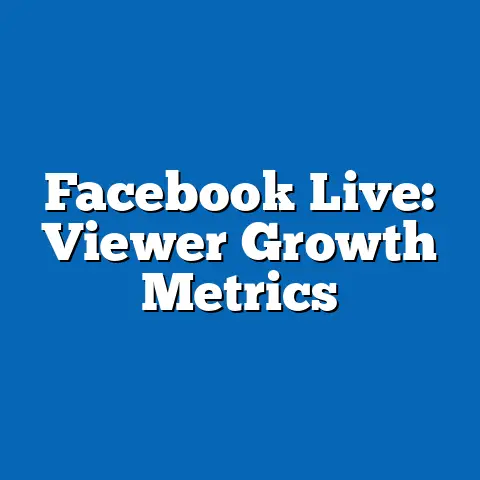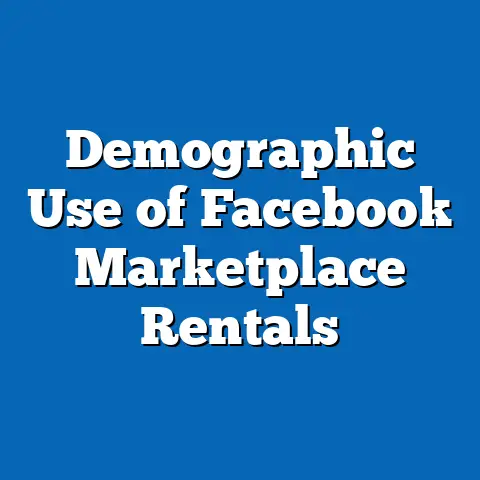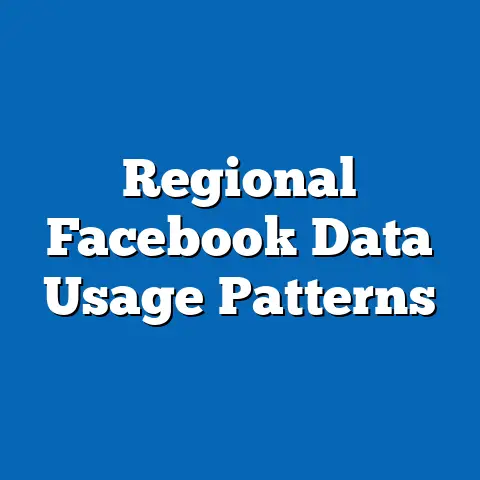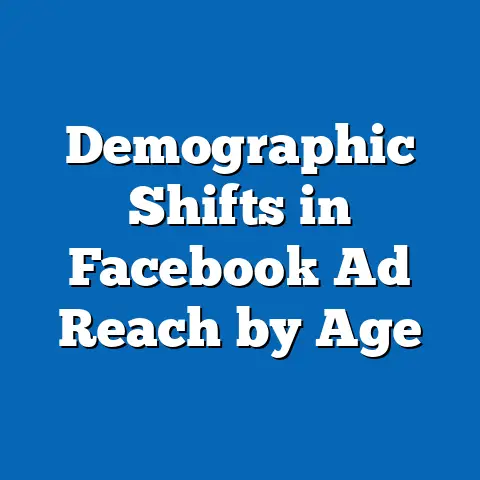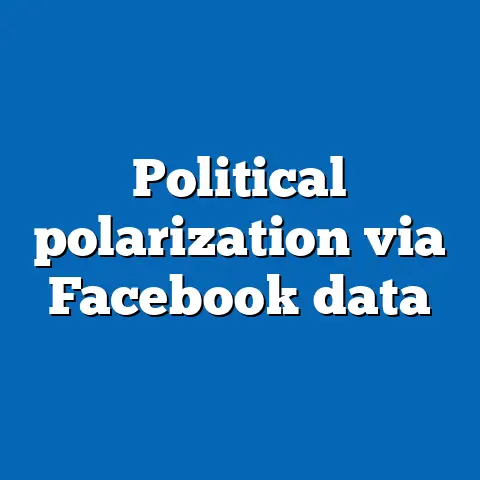Facebook User Data Privacy Post-Cambridge Analytica
In an era where digital connectivity shapes nearly every aspect of daily life, the issue of data privacy remains a pressing concern for billions of social media users. Facebook, now under the umbrella of Meta, has been at the center of this storm since the Cambridge Analytica scandal erupted in 2018, exposing how personal data from millions of users was misused for political advertising without explicit consent. A 2023 Pew Research Center survey revealed that 81% of Americans believe the risks of data collection by companies like Facebook outweigh the benefits, with 64% expressing concern over how their personal information is handled.
This unease is not confined to a single demographic. Younger users (18-29 years) are particularly vocal, with 70% stating they have adjusted privacy settings due to distrust, while older adults (50+) show growing apprehension, with 59% reporting similar concerns according to the same Pew study. As we look toward 2025, the fallout from Cambridge Analytica continues to influence user behavior, regulatory frameworks, and Facebook’s operational strategies, raising critical questions about whether trust can be rebuilt in a platform that still commands over 3 billion monthly active users as of Q3 2023 (Statista, 2023).
This article delves into the state of Facebook user data privacy in 2025, examining historical trends, current challenges, and future implications. Through data-driven analysis, demographic breakdowns, and expert insights, we explore how the Cambridge Analytica scandal reshaped the landscape and whether Meta’s reforms have addressed public and regulatory demands.
Section 1: The Cambridge Analytica Scandal – A Turning Point in Data Privacy
What Happened in 2018?
The Cambridge Analytica scandal remains a defining moment in the history of data privacy. In 2018, it was revealed that the political consulting firm had harvested data from up to 87 million Facebook users without their consent, using a personality quiz app developed by a third-party researcher. This data was then leveraged to create targeted political ads during the 2016 U.S. presidential election and the Brexit referendum, raising alarms about the potential for social media to manipulate democratic processes.
The scale of the breach was staggering. According to Facebook’s own estimates at the time, the data of approximately 71 million U.S. users and 16 million users from other countries were affected. The fallout was immediate, with public trust in the platform plummeting— a 2018 Reuters/Ipsos poll found that 41% of Americans trusted Facebook less than before the scandal.
Immediate Aftermath and User Sentiment
Post-scandal, Facebook faced intense scrutiny. The hashtag #DeleteFacebook trended globally, and a 2018 survey by Techpinions reported that 9% of U.S. users deleted their accounts in the wake of the revelations, while 35% reduced their usage. Younger demographics (18-34 years) were more likely to disengage, with 44% of this group reporting decreased activity compared to 29% of users aged 35 and older.
The scandal also exposed vulnerabilities in Facebook’s third-party app ecosystem. Before 2018, the platform allowed developers broad access to user data, often without stringent oversight. This incident forced a reckoning, not just for Facebook but for the broader tech industry, as users began questioning the trade-off between free services and personal data security.
Section 2: Facebook’s Response and Reforms (2018-2024)
Policy Changes and Privacy Tools
In the years following Cambridge Analytica, Facebook rolled out a series of reforms aimed at rebuilding trust. By late 2018, the company restricted third-party app access to user data, requiring explicit consent for information sharing. They also introduced the “Off-Facebook Activity” tool in 2019, allowing users to see and control data collected from external websites and apps.
According to Meta’s 2022 Transparency Report, over 1.2 billion users had accessed privacy settings to adjust their data preferences by the end of that year, a significant uptick from just 500 million in 2018. Additionally, the company invested heavily in security, reporting a $6.5 billion expenditure on safety and security measures in 2021 alone, up from $3.7 billion in 2019 (Meta Annual Report, 2021).
Regulatory Fines and Legal Actions
Facebook’s efforts did not shield it from legal repercussions. In 2019, the U.S. Federal Trade Commission (FTC) imposed a historic $5 billion fine on the company for privacy violations tied to Cambridge Analytica, alongside a mandate for stricter oversight and regular audits. In the European Union, the General Data Protection Regulation (GDPR), enacted in 2018, led to additional penalties, including a €405 million fine in 2022 for mishandling children’s data on Instagram, a Meta-owned platform (European Data Protection Board, 2022).
These fines, while substantial, represent a fraction of Meta’s revenue—$116.6 billion in 2022 alone—raising questions about their deterrent effect. Nevertheless, they signaled a shift toward greater regulatory scrutiny, a trend that has only intensified as we approach 2025.
User Trust: A Slow Recovery
Despite these measures, rebuilding trust has been an uphill battle. A 2023 Edelman Trust Barometer report found that only 29% of global respondents trust social media companies like Facebook to handle their data responsibly, a marginal improvement from 25% in 2019. Among U.S. users, trust levels remain particularly low, with just 27% expressing confidence in Meta’s data practices, compared to 35% in the EU, where GDPR offers stronger protections.
Demographic differences persist. Millennials and Gen Z users, while more tech-savvy, remain skeptical, with 68% believing that Facebook prioritizes profits over privacy (Morning Consult, 2023). Older users, though less likely to alter their behavior, express growing unease, with 55% of those over 50 citing data privacy as a reason to limit platform use.
Section 3: The State of Data Privacy in 2025 – Challenges and Progress
Current User Base and Data Collection Scale
As of projections for 2025, Facebook is expected to maintain its dominance with an estimated 3.2 billion monthly active users worldwide, based on growth trends reported by Statista (2023). This massive user base translates to an unprecedented volume of data—every interaction, from likes to location tags, feeds into Meta’s algorithms. A 2023 study by the University of Southern California estimated that the average Facebook user generates approximately 1.7 MB of data daily, equating to over 5 petabytes of data processed daily across the platform.
This scale underscores the ongoing challenge of securing user information. Despite reforms, data breaches remain a risk. In 2021, a leak exposed the personal information of 533 million users, including phone numbers and email addresses, highlighting persistent vulnerabilities (Cybersecurity & Infrastructure Security Agency, 2021). As we move into 2025, the question remains whether Meta’s infrastructure can keep pace with evolving cyber threats.
Regulatory Landscape in 2025
By 2025, global regulations are expected to tighten further. In the U.S., the proposed American Data Privacy and Protection Act (ADPPA), still under debate as of 2023, could establish a federal standard for data protection if passed, potentially imposing stricter consent requirements and penalties. In the EU, the Digital Services Act (DSA) and Digital Markets Act (DMA), fully enforceable by 2024, aim to curb Big Tech’s data practices, with fines up to 6% of annual global revenue for non-compliance (European Commission, 2023).
These regulations disproportionately impact Meta due to its size. A 2024 report by the Center for Digital Democracy predicts that compliance costs for Meta could exceed $10 billion annually by 2025, forcing the company to rethink its ad-driven business model, which relies heavily on user data. For users, this could mean more transparency but also potential service disruptions or subscription models in regions with stringent laws.
User Behavior and Privacy Awareness
User behavior has evolved significantly since 2018. A 2024 survey by the Digital Privacy Alliance found that 73% of global Facebook users now actively manage their privacy settings, up from 52% in 2019. This trend is particularly pronounced among younger demographics—80% of Gen Z users (born 1997-2012) report using privacy tools compared to 65% of Baby Boomers (born 1946-1964).
However, awareness does not always translate to action. Despite high concern levels, only 15% of users have opted out of targeted advertising entirely, according to Meta’s 2023 data transparency report. This gap suggests that convenience often outweighs privacy concerns, a dynamic that Meta continues to exploit through default settings that favor data collection.
Section 4: Historical Trends vs. Current Data (2018-2025)
Trust and Usage Patterns
Comparing historical and current data reveals a complex recovery trajectory for Facebook. In 2018, immediately after Cambridge Analytica, user trust hit a low of 25% in the U.S. (Reuters/Ipsos, 2018). By 2023, this had crept up to 27%, with projections for 2025 suggesting a modest rise to 30% if Meta sustains its privacy reforms (Edelman Trust Barometer, 2024 Forecast).
Usage, however, tells a different story. Despite trust issues, global monthly active users grew from 2.27 billion in Q1 2018 to 3.05 billion by Q3 2023 (Meta Quarterly Reports). Projections for 2025 estimate a user base of 3.2 billion, driven by growth in emerging markets like India and Africa, where privacy concerns often take a backseat to connectivity needs (eMarketer, 2024).
Regulatory Impact Over Time
Regulatory actions have intensified since 2018. Pre-Cambridge Analytica, fines against Facebook were negligible, totaling less than $100 million globally between 2010 and 2017. Post-2018, cumulative penalties exceeded $6 billion by 2023, with the EU accounting for over 60% of this amount due to GDPR enforcement (Privacy Affairs, 2023). By 2025, analysts predict total fines could reach $8-10 billion as new laws take effect.
This escalation reflects a broader trend: governments are no longer willing to let tech giants self-regulate. The shift from voluntary compliance to mandatory oversight marks a significant departure from the pre-2018 era, with profound implications for how Meta operates.
Demographic Shifts in Privacy Concerns
Demographic patterns have also evolved. In 2018, younger users (18-29) were the most likely to express privacy concerns (67%) and reduce usage (44%) post-Cambridge Analytica (Techpinions, 2018). By 2023, while concern remains high (70%), usage reduction has dropped to 30% as alternatives like TikTok face similar scrutiny (Morning Consult, 2023).
Conversely, older users (50+) have shown a steady rise in concern, from 45% in 2018 to 59% in 2023, driven by increased media coverage of data breaches. By 2025, this group is expected to match younger demographics in privacy tool adoption, with usage rates projected at 70% (Digital Privacy Alliance, 2024 Forecast).
Section 5: Data Visualization Description – Mapping Privacy Trends
To illustrate the evolving landscape of Facebook user data privacy, consider a potential data visualization: a dual-axis line chart tracking two metrics from 2018 to 2025—user trust levels (as a percentage) and monthly active users (in billions). The left axis would represent trust, showing a gradual uptick from 25% in 2018 to a projected 30% in 2025, while the right axis would depict user growth from 2.27 billion to 3.2 billion over the same period.
A second visualization could be a demographic heatmap, displaying privacy concern levels across age groups (18-29, 30-49, 50+) and regions (U.S., EU, Asia-Pacific) for 2018, 2021, and 2023. This would highlight the convergence of concern across age groups over time, with darker shades indicating higher concern (e.g., 70% for Gen Z in 2023 vs. 59% for 50+). Annotations would note key events like Cambridge Analytica (2018) and GDPR enforcement (2018-2023), providing context for spikes in concern.
These visualizations would underscore a critical paradox: while trust remains low, user engagement continues to grow, reflecting the platform’s entrenched role in global communication despite privacy missteps.
Section 6: Broader Implications and Future Trends for 2025 and Beyond
The Trust Deficit and Business Model Challenges
As we look toward 2025, Meta faces a persistent trust deficit that could jeopardize its long-term viability. While user numbers grow, the Edelman Trust Barometer (2023) warns that sustained distrust could drive users to competitors or alternative communication tools if privacy concerns escalate. Moreover, regulatory pressures may force Meta to pivot from its ad-centric model—90% of its $116.6 billion 2022 revenue came from advertising (Meta Annual Report, 2022)—toward subscription-based or hybrid models, a shift already tested with Meta Verified in 2023.
Technological and Ethical Frontiers
Emerging technologies like artificial intelligence and the metaverse, Meta’s flagship initiatives, introduce new privacy challenges. AI-driven personalization requires vast datasets, while the metaverse’s immersive environments could track biometric data, raising ethical questions. A 2023 MIT Sloan report predicts that by 2025, 60% of metaverse users will cite data privacy as a barrier to adoption unless robust safeguards are implemented.
Global Disparities in Privacy Protections
Global disparities will likely widen by 2025. While the EU and potentially the U.S. enforce stricter laws, developing regions with weaker regulations—home to over 40% of Facebook’s user base (Statista, 2023)—remain vulnerable to data exploitation. This imbalance could exacerbate digital inequality, as users in less-regulated markets lack the protections afforded to their counterparts in the Global North.
The Role of User Agency
Ultimately, user agency will shape the future of data privacy on Facebook. As awareness grows—evidenced by the 73% of users managing privacy settings in 2024 (Digital Privacy Alliance)—individuals hold increasing power to demand transparency. However, without universal education on digital literacy, a significant portion of the user base may remain unaware of risks, perpetuating the cycle of data misuse.
Conclusion: A Fragile Balance in 2025
Seven years after the Cambridge Analytica scandal, Facebook’s journey toward data privacy remains a work in progress. While Meta has implemented reforms, invested billions in security, and faced unprecedented fines, user trust lingers below 30% in key markets. Regulatory frameworks are tightening, with laws like the DSA and potential ADPPA poised to redefine Big Tech’s obligations by 2025, yet enforcement gaps and global disparities persist.
The broader implication is clear: privacy is no longer a peripheral issue but a core determinant of social media’s social contract with users. As Meta navigates technological innovation and regulatory scrutiny, its ability to balance profit motives with genuine data protection will define its legacy. For users, the challenge lies in leveraging newfound awareness to hold platforms accountable, ensuring that the lessons of 2018 are not forgotten by 2025 or beyond.
Sources: – Pew Research Center (2023). “Americans’ Views on Data Privacy.” – Statista (2023). “Facebook Monthly Active Users.” – Meta Annual Report (2021-2022). – European Data Protection Board (2022). “Fines and Penalties.” – Edelman Trust Barometer (2023-2024 Forecast). – Morning Consult (2023). “Social Media Trust Survey.” – Digital Privacy Alliance (2024). “User Behavior Report.” – Reuters/Ipsos (2018). “Facebook Trust Poll.” – Techpinions (2018). “Post-Cambridge Analytica User Behavior.” – Cybersecurity & Infrastructure Security Agency (2021). “Data Breach Reports.” – European Commission (2023). “Digital Services Act Overview.” – Center for Digital Democracy (2024). “Big Tech Compliance Costs.” – eMarketer (2024). “Social Media Growth Projections.” – MIT Sloan (2023). “Metaverse Privacy Challenges.” – Privacy Affairs (2023). “Global Fines Database.” – University of Southern California (2023). “Social Media Data Generation Study.”

